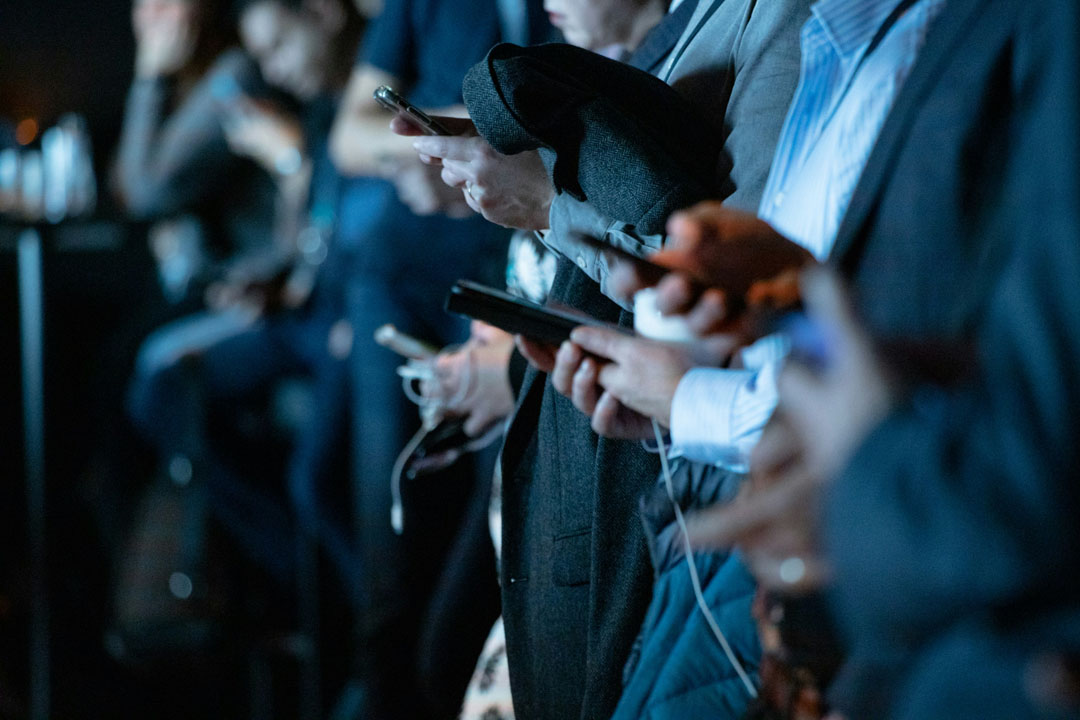We Don’t Own Our Phones. They Own Us.

The evidence is mounting, painting a stark picture of the ever-growing dominance of cell phones in our lives. A mere five years ago, a study involving volunteers who installed a tracking app on their phones revealed an average usage of 85 times a day. Today, the data is even more alarming, indicating an average usage of 144 times a day. This means that Gen Z users are sacrificing a staggering 6.5 hours of their day to their phones.
Hyper-connected? Losing 23 , now 99 days a year to our phones?
Just a few years back, I made a comment in a similar article that seems almost quaint now, “On average, we spend 23 days a year staring at our phones.” The reality is far more grim. The latest data suggests that our children, on average, are losing a whopping 98.9 days a year to their phones.
Not surprisingly, once tracking data is installed, everyone underestimates their usage. In other words, most of us are in denial about the level of usage that controls much of our lives.
So yes, it’s safe to say we are hyper-connected. And in doing so, we are paying the price by giving more and more of our lives to our phones.
Who is really controlling our lives? The lives of our children?
The more we give out our emails and phone numbers and the more apps we install, the more likely our phone is to make that little ‘ding’ or vibrate on the counter. With each little signal that a message is waiting, we appear more like little mice jumping instantly at the sound.
This happens not once or twice or 10 or 12 times but hundreds of times a day. For a good portion of the time, we surrender our attention to events that others have directed our way. We are no longer the decision-makers about what gets our attention, particularly at home and in our personal lives.
Pause for a moment and consider this. Someone else’s bad day suddenly becomes our problem. A misinterpreted email, someone else’s boredom, or the fear-mongering tactics of apps and ‘influencers’-all these things easily hijack our attention. Are we ever going to grow weary of the constant barrage of ‘Breaking News’?
Oh, but it still gets worse. A photo from a distant relative drinking margaritas in Mexico sends us a signal that pulls us in. Our favorite store catches our attention over something we clearly don’t need, but we give them permission. Our daughter texted us that she needs to go shopping while she should be doing her math.
So again, who is in control of our lives? Who is constantly grabbing our attention? Yes, we signed up for this. We let our kids sign up for this. But we have surrendered control to these outside forces. We have surrendered control because we fail to set limits, the consequences of which is eating up our lives.
Constantly Distracted. Constantly Making (Meaningless) Decisions.
Every time the phone ‘dings,’ we have a decision to make: respond or not respond? Funny or serious tone? Contemplate or react quickly? Bring someone else into the loop or not? Do some research first or go with your gut. Check the schedule or trust your memory?
Of course, the list goes on. This only touches the surface of the infinite ways that others can now call upon our decision-making ability. Here’s the problem: research suggests that we arise each morning with only a certain amount of decision-making ‘juice.’ No matter how small, every decision consumes some of this ‘juice.’ And here we are, using that precious ‘juice’ to make all these unnecessary decisions. Might we feel overwhelmed and inept at making large decisions due to wasting our good decision-making juice? We are stressed out. We can’t focus on the important stuff. Sleep suffers. Happiness disappears.
Am I blaming all this on your phone? Of course not. But we can’t deny the growing impact of bringing more distractions and decisions into daily life. It’s a fact that this is stressful, and all these decisions deplete us—and they deplete our children.
Also, the FOMO phenomenon is very real, and our children are often immersed in this, comparing their world with the ‘best moments’ their peers are having.
And finally, there is the issue of joy and sustained happiness. Does it come from a phone? Some could accurately argue that our phones allow connections that bring happiness. And certainly, that is true.
However, this article is about excess and the impact that excessive usage has on our lives. Spending more and more time on our phones has not equated to any increase in happiness. It’s the opposite.
Giving up more days of our lives to our phones does not increase our sense of self-control. In fact, it does the opposite.
Being more connected to the world (in excess) has not added value to our lives. In fact, it has the opposite effect.
The more time we spend on the phone, the less time we spend engaged in life, movement, or activities that require growth and learning. For the most part, once we have connected with those we love and care about and take care of essential business, we can put our phones away. We can take control over what gets our time and attention. We have the power.
98.9 Days of Their Life. Is it time for a change?




